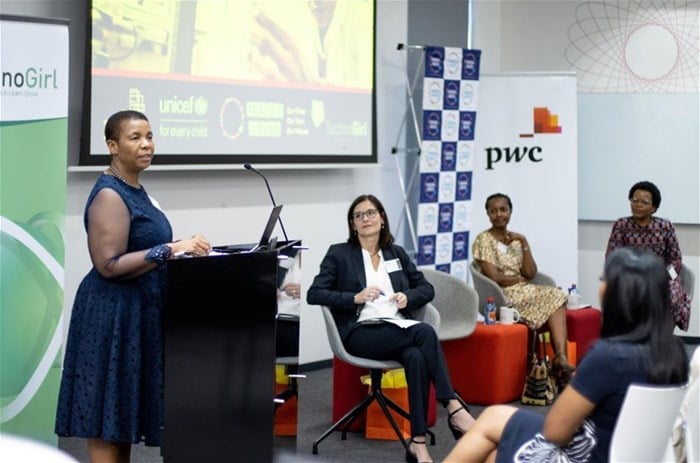There is a growing recognition of the importance of empowering girls to pursue careers in Science, Technology, Engineering, and Mathematics (STEM). This paradigm shift acknowledges the tremendous potential of girls in Africa and the need to both transform and bridge the gender gap in STEM fields. In this manner, we can unlock a world of opportunities and foster inclusive economic development.
One of the major barriers faced by girls in Africa when it comes to STEM subjects is the persistence of gender stereotypes. Societal and cultural norms frequently dictate that girls are not as capable or as interested in science and technology as boys.
In order to appropriately empower African youth, programmes such as those implemented by Techno Girl Trust are open to both boys and girls, though 90% of the beneficiaries are girls - it is essential to challenge these stereotypes.
STEM fields have traditionally been dominated by certain demographic groups, resulting in a lack of diverse perspectives and ideas. By promoting STEM education among African children, particularly those from underrepresented communities and those with marginalised backgrounds, we can encourage diversity, inclusivity, and representation in the future African workforce. This not only enriches the STEM sector but also leads to more holistic and comprehensive solutions to complex problems.
Early exposure to STEM subjects
The process should start at schools where early exposure to STEM subjects is crucial for fostering a love and passion for these fields. Schools should incorporate age-appropriate STEM activities and experiments into their curriculum, starting from the primary level.
Additionally, extracurricular programmes, science fairs, interactive workshops and work shadowing can play a key role in exposing young girls to the wonders of STEM. By providing hands-on experiences, girls can develop a sense of curiosity, problem-solving, and confidence in their abilities.

Image supplied
There are innovative programmes for girls and young women such as the The Techno Girl Trust who show interest in the STEM subjects. Young female learners from quantile 1-3 schools are earmarked to become beneficiaries of the programme. They gain access to knowledge and mentorship through a structured job-shadowing programme which empowers them to make informed career choices. This will lead to sustained employment opportunities and, in so doing, breaking the cycle of poverty.
STEM subjects open the door to a wealth of interesting careers, and by highlighting numbers of women and role models advancing science careers, girls are shown that Africa counts on them to discover the next frontiers of research and digital innovation.
Programmes such as these are focused on making a large-scale impact at secondary and tertiary level, in which the earlier formative years are essential in establishing a pipeline of girls with an interest in STEM subjects through their basic education. This sustainable and systemic gateway to STEM careers enables the development of homegrown female science, technology, engineering and mathematics skills for a transformed society.
This ensures equal access to schooling and post-schooling education and especially so in the fields of STEM. This is being achieved by empowering young women and girls by making every effort to end all forms of discrimination in the STEM industry while striving to ensure young women’s full and effective participation and equal opportunities for leadership at all levels of decision-making in economic and public life.
Women who have excelled in STEM careers can inspire and mentor African youth, demonstrating that they too can achieve great things in these domains. Initiatives are being implemented to connect girls with successful women in STEM through mentorship and job shadowing programmes fostering a sense of belonging and creating a supportive ecosystem.
Access to digital technology remains a challenge in many parts of Africa, especially in rural areas. To empower girls in STEM, it is crucial to address the digital divide and ensure equitable access to digital resources.
We can create a future where girls in Africa have equal opportunities to pursue STEM careers. Let us work together to inspire and empower the next generation of female scientists, engineers, and innovators, transforming Africa and the world for the better.









































